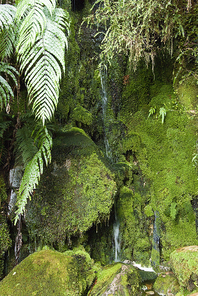
In this guest post Martin Sharman opens up a rich area of debate by arguing that as a policy concept, ecosystem services puts human wants first and foremost and undermines moral-aesthetic value arguments for conservation that are widely held in society. Martin was the policy offer responsible for biodiversity and ecosystems in the European Commission’s DG Research & Innovation up until his retirement last November. During his career he made an enormous contribution to biodiversity research and policy, including the initiation of the BioFresh project. The opinions expressed in this post are, of course, his own and are not intended to represent a position of either the Commission or BioFresh.
A "resource" is something that is useful to someone. A "natural resource" is something in the natural environment that a human can use to satisfy want or increase wellbeing.
To adopt this vocabulary is to adopt a forthright utilitarian view of the natural environment, and implicitly to accept that human benefit is the only good. Not only is human benefit the only good, but it is quantifiable – for if not, then we can never agree on what constitutes a resource, or who has the greater right to it. Thus someone who speaks of natural resources accepts, again implicitly, that happiness and wellbeing can be quantified. The vocabulary also requires that this quantified human benefit remains, if not constant, then comparable over cultures and generations.
More than this: the wellbeing of the "resource" is insignificant. It is only by setting concern for the wellbeing of the resource to zero that one can regard it as merely something to satisfy human want. Human benefit is the only good. This is the First Commandment; in the limpid words of the King James version of the bible, thou shalt have no other gods before me.
In this observation lies much of the moral argument against the concept of ecosystem services: just as oranges are not the only fruit, so humans are not the only species.
The concept of ecosystem services is one thing; the premise of its proponents is another. It is, in short, that conservation based on intrinsic value of biodiversity has failed to stop the loss of species, ecosystems, and the complex web of interactions between them. Since an ethical argument has failed, then we should try self-interest. By demonstrating that human wellbeing is increased by the services rendered by ecosystems, we can motivate people to protect the source of the service – biodiversity.
We know that conservation is not working because we continue to lose biodiversity. Oh yeah? This is the equivalent of me deciding that my accelerator is not working because my car is losing speed. Why is such a daft non-sequitur accepted by otherwise intelligent people? You immediately thought of many reasons my car might be losing speed – I have the brakes on, I’m going up a hill, I’ve run out of fuel, I’ve run into sand, I’ve hit an oncoming truck. The obvious reason that we are losing biodiversity is the memento mori that stares at us from our looking glass – biodiversity loss is the inevitable result of our debt-based economic system and our swelling population’s unsustainable demands on nature. We all know that. Why do we mutely accept the dangerously diversionary nonsense that "biodiversity is being lost because conservation is not working"?
Ecosystem services takes the utilitarian logic of natural resources one important step further. A "service" by definition benefits humans. If we are to protect services only if they benefit humans, then what happens to the useless ecosystems? Are they simply to be cemented over?
I recently heard a discussion in which one person said "most people are useless", meaning that they are surplus to requirement. The outrage that this provoked was spearheaded by someone saying that you can never prove that anyone is useless, because you can never know enough about their contribution to their social fabric. So does this mean that you can never show that an ecosystem is useless? If so that leaves the ecosystem services argument saying that because some ecosystems benefit humans, we have to protect every ecosystem.
Which may be the right answer, but why reach it by such objectionable means?
For those of us with a reverence of nature, the ecosystem services rhetoric and mindset are abhorrent, being fundamentally immoral and unethical. They take the most ecologically damaging invasive species in the history of life, and place it above all other species on Earth. They cast all other – voiceless – species in the role of consumables. This mindset might have worked for Homo habilis. It will not work for Homo sapiens.
Martin Sharman for the BioFresh Blog: http://biofreshblog.com/2013/07/03/perspective-martin-sharman-on-ethics-and-the-ecosystem-services-paradigm/




 RSS news
RSS news Print this article
Print this article
